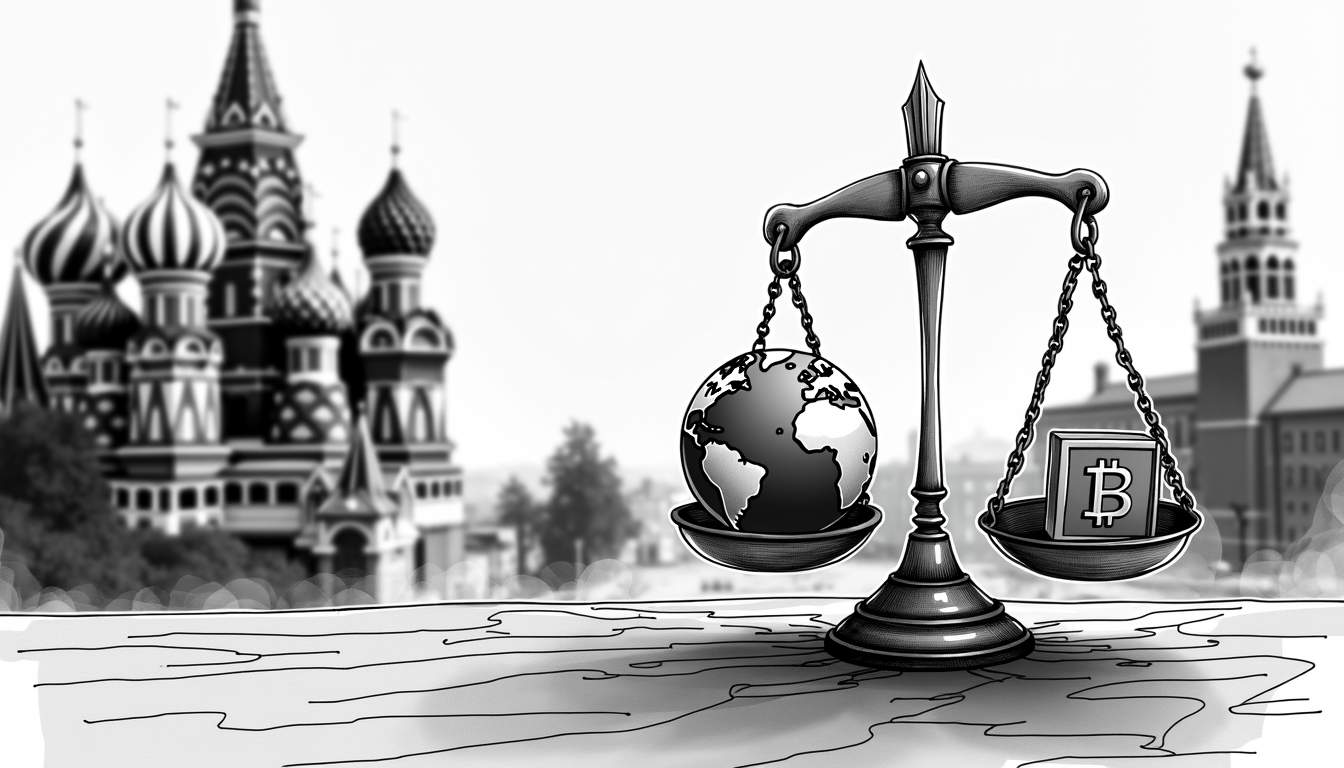What is the new cryptocurrency regulation in Russia?
Q: What are the main points of Russia’s new cryptocurrency law?
A: Russia’s new cryptocurrency law, effective from January 1, 2025, recognizes digital currencies like Bitcoin and Ethereum as property. This comprehensive law includes provisions for taxation, reporting, and regulation of mining and trading activities, aimed at fostering compliance in the crypto landscape.
Q: How does the law define cryptocurrency?
A: The law designates cryptocurrencies as property, which allows their use in certain controlled foreign trade activities. This is significant as it provides a legal basis for their handling, ownership, and transfer.
Q: What are the tax implications for individuals and companies?
A: The law introduces a progressive tax rate for individuals, levying 13% on income up to 2.4 million rubles and 15% on income exceeding this amount. Corporations mining cryptocurrencies will be subject to a 20% corporate tax starting in 2025, while mining and sales of cryptocurrencies will be exempt from VAT.
Q: What compliance measures are included?
A: Individuals and businesses engaging in cryptocurrency transactions must report their activities to tax authorities, with penalties stipulated for non-compliance.
How does this compare to the crypto regulation in the US?
Q: What distinguishes Russia’s crypto regulations from those in the US?
A: Russia’s regulations are centralized and comprehensive. In contrast, the US lacks a cohesive federal crypto law, relying on a patchwork of regulations from agencies like the SEC, CFTC, and FinCEN.
Q: How are taxes handled differently?
A: Both countries consider cryptocurrencies as property for tax purposes. Russia’s tax system is progressive for individuals, while the US employs a capital gains tax structure, differing based on the holding period.
Q: How does regulatory oversight differ?
A: Russia’s law gives control of cryptocurrency transactions to the Central Bank of Russia, while in the US regulation is fragmented, and crypto firms must comply with strict AML and KYC laws.
What implications does Russia’s law have for the global economy?
Q: How might this law affect international payments involving Russia?
A: The law permits the Central Bank of Russia to develop an experimental mechanism for cryptocurrency cross-border payments, which may benefit Russian businesses in navigating international trade under sanctions.
Q: Could this help Russia avoid existing sanctions?
A: The primary goal of this legislation is to enable Russia to bypass sanctions imposed by Western nations, allowing alternative transaction methods using cryptocurrencies.
Q: What could be the overall impact on global financial systems?
A: It represents a shift towards reducing reliance on dollar-centric financial networks, including partnerships with BRICS countries for settlements in local currencies.
Will Russia’s crypto law influence other countries?
Q: Could this framework serve as a model for other nations?
A: Russia’s comprehensive regulatory framework for cryptocurrencies may guide other nations in developing their own laws, potentially leading to an international standardization.
Q: Might it help countries avoid sanctions as well?
A: The law is partially crafted to facilitate the use of cryptocurrencies in place of traditional systems, which may lead other nations under sanctions to adopt similar practices.
Q: How is central bank oversight incorporated?
A: The law consolidates the Central Bank’s regulatory power over cryptocurrency transactions, likely serving as a guide for other nations’ central banks managing cryptocurrency’s financial impact.
What can we expect for the future of crypto in Russia?
Q: When is the law set to be implemented?
A: The law will take effect on January 1, 2025, allowing time for individuals and companies to adapt to the new regulations.
Q: What does the government hope to achieve?
A: The government aims for a transparent and compliant crypto market by recognizing digital currencies as property and establishing a tax system, integrating them into the financial framework amid changing global digital asset trends.
Q: How will this position Russia in the global crypto arena?
A: The new law is likely to place Russia as a leader in cryptocurrency regulation, potentially prompting other nations to consider similar frameworks and spurring blockchain development in international commerce.
In summary, Russia’s new law could significantly influence international transactions and the financial landscape while reshaping global discussions on cryptocurrency regulation, compliance, and potential usage.








